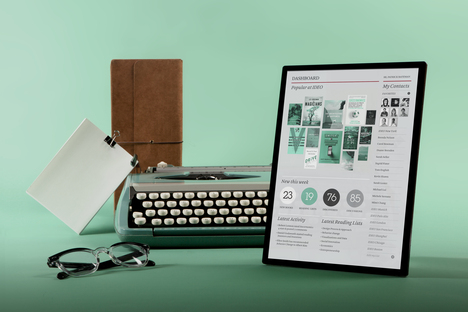3:04 AM - I believe Adobe PDF will kill the traditional publish industry

The publishing industry relies heavily on intellectual property - either developed in-house or procured through agreements with authors and creators. This in turn implies a value based pricing - the more popular the author is, the higher the price a publisher can charge. With printed content, publishers have to contend with additional cost overheads of printing and distribution. More often than not, pricing of printed content is cost based than value based. With digital content, however, publishers do not need to bear the costs of printing
In the ebook industry there is still a need for the publisher. They are the filter between you the consumer and a complete pile of trash! There is value in the workflow; wouldn't you rather know that someone had spent the time sifting out complete rubbish, and (even more importantly) improving the product before it gets into your hands?The publishing industry has progressively been going digital. While selling digital content is recent, publishers have used digital production techniques processes that are reliable, stable and efficient. Such processes, however, ended mostly in the creation of PDFs - that doubled as print ready files and/or a product that was to be sold digitally.
Traditional publishing network publishing in the necessity and feasibility analysis, Computers and the Internet, is creation way, the editor, printing, publishing way, issue and reading of the revolution with PDF converter mac software. It said goodbye to the paper and pen creation way and edit mode. The author works or in the blanks delivery form, or delivery directly on the website.
PDF is a kind of electronic file standard, which can graphic part embedded, small volume, convenient to read and transmission, PDF standards meet the requirements of the printing, but also meet the requirements of the published resource management, realized the full text search. In the process of production process in CTP, through the digital process will all documents to standard of PDF files, realize the machine or remote electronic files proofreading, improve the production efficiency, and ensure the safety in production of the electronic documents.
It is also offering e-books on its e-readers at a lesser price than the published books to increase the demand for its e-books. For the same, Amazon at present is buying books at a higher rate from the publishers and selling them at a lower rate to increase its customer base. Observing the strategies adopted by Amazon, few analysts feel that it might monopolies the market very soon. Although Kindle is considered as the iPod of the publishing industry by some critics, to what extent it would be its saviour is yet to be seen. Also, with many new trends such as elf-publishing evolving in the 21st century, the major question is, what should be the course of action for the publishing industry and the e-book readers: compete or collaborate?

If they do, then the giant publishers will probably disappear, or shrink down to smaller presses specializing in marketing and selling books to particular audiences (and even venues, like complementary material for hardware stores and the like). Unless marketing e-books profitably turns out to be very expensive, you just don't need big publishers in an era where you don't need the economies of scale in printing books that they have historically provided. Given the ease of publishing an ebook, self-publishing will continue to tempt frustrated authors convinced that their unique voice would benefit readers. Perhaps Penguin has hit upon an idea that will prove profitable for the publishing industry. sometimes, we need to convert PDF to PowerPoint, the PDF to PowerPoint converter software, and best PDF converter are the best choice. Only time will tell. With Amazon selling more Kindle ebooks than paperbacks or hardbound books, the publishing industry is in trouble. I think that today they are in shock. Not knowing where to go and what to do. It will be very interesting the see if they survive as an industry.
Most publishers we surveyed have indicated that universal accessibility is a driving factor while choosing formats. The increase in popularity of e-book reading devices and mobile devices (smart phones, tablets, touch screen PCs, etc.) has led to publishers consciously identifying formats that are easily supported. Formats such as PDF have emerged as a universal and standard format for the industry. Publishers are also supporting formats that are popular with their respective consumer base, and are actively incorporating such formats. For example, with the introduction of Apple's iPad, several leading publishers have created content that is specific to the iPad. This content, rich in multimedia, is optimized for the device.
There's no doubt that ebook sales are ramping up, (though I think it'sworth pointing out that the Amazon announcement was about volume, not revenue. They have made hundreds, if not thousands, of books available for pennies), and the wonderful thing for us as publishers, is that the (comparatively) low cost of bringing an ebook to market allows us to publish even niche-ier (?) books than we would normally be able to justify given the high costs of paper, storage, shipping, etc. We can stop swinging for the fences with every book, and publish specialized books for passionate audiences. It also frees up (some) more money to market the book.
PDF of electronic files not only meets the standard printing, and the requirements for content to press, PDF file format have full text search function. To press is concerned, the most important core resource is the electronic document, electronic files in addition to keep besides, also ensure that the electronic file can be recycled, through the PDF technology will achieve these needs, better protection and utilization of press resource.